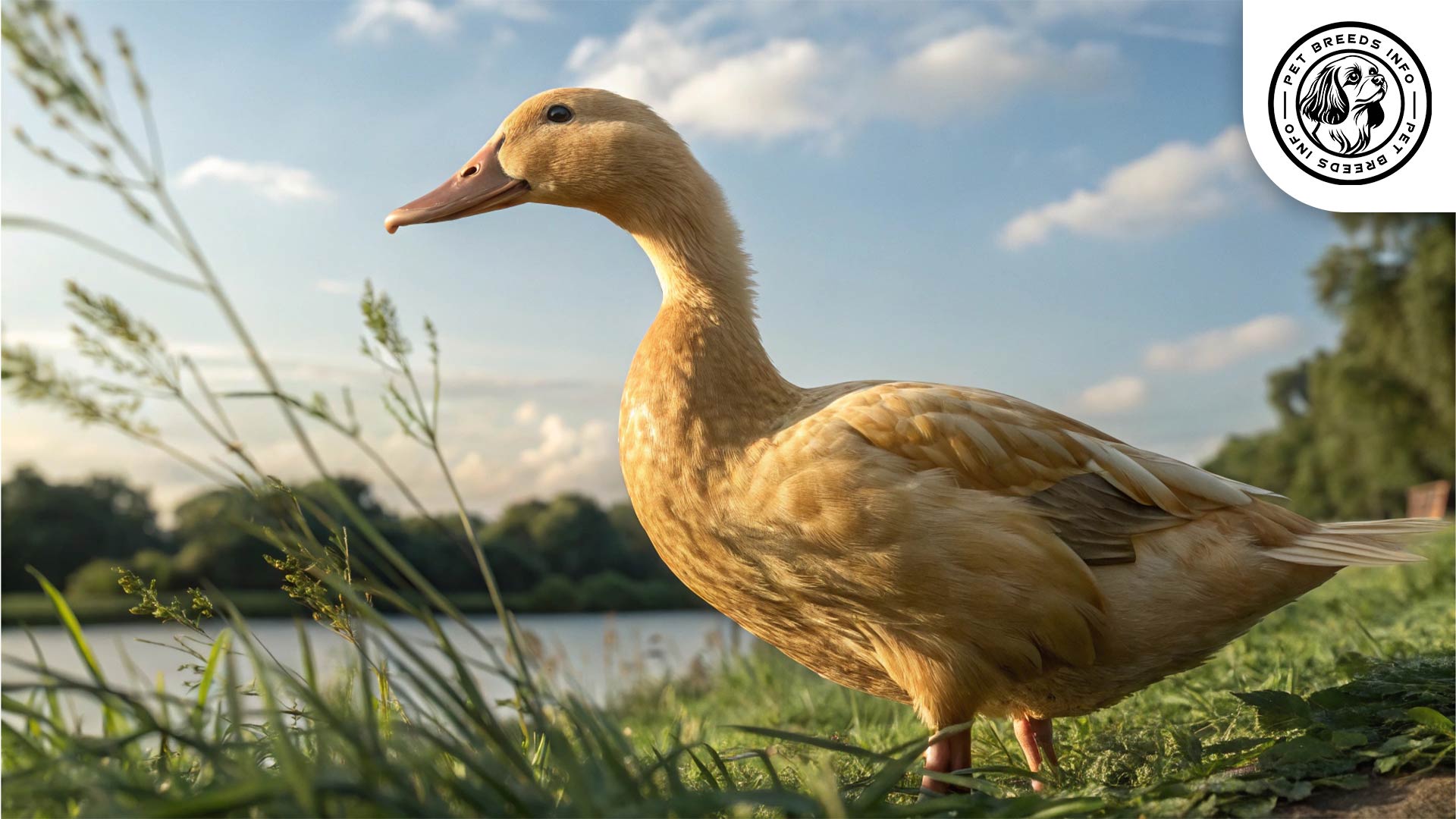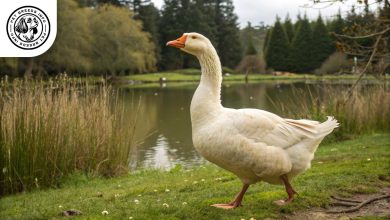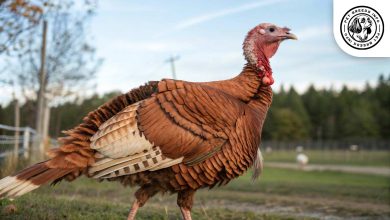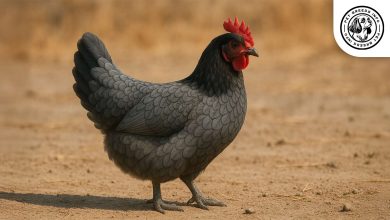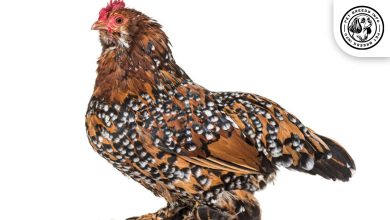Buff Orpington Duck Breed: Personality, Lifespan & Care
General Introduction of the Breed
The Buff Orpington Duck is a beautiful, dual-purpose domestic duck breed known for its gentle temperament and excellent egg-laying abilities. This breed originates from the United Kingdom and was developed by William Cook of Orpington, Kent, in the early 20th century. The Buff Orpington Duck was bred to provide both meat and eggs while maintaining a striking buff-colored plumage. Though less common than other domestic duck breeds, it remains a cherished choice among duck keepers due to its calm personality and attractive appearance.
Table of Contents
| Common Name | Buff Orpington Duck |
| Scientific Name | Anas platyrhynchos domesticus |
| Origin | United Kingdom |
| Size | Medium |
| Lifespan | 8–12 years |
| Colors | Buff |
| Talking Ability | Low |
| Noise Level | Low |
| Social Behavior | Docile, sociable, friendly |
Physical Characteristics
The Buff Orpington Duck is a medium-sized duck with a well-rounded body. Males typically weigh around 8 pounds (3.6 kg), while females weigh approximately 7 pounds (3.2 kg). Their feathers are a uniform buff color, with drakes (males) sometimes having a slightly darker head. They have dark brown eyes, a medium-sized bill that is usually rich yellow or orange, and orange webbed feet. Their compact body shape gives them a sturdy and elegant appearance.
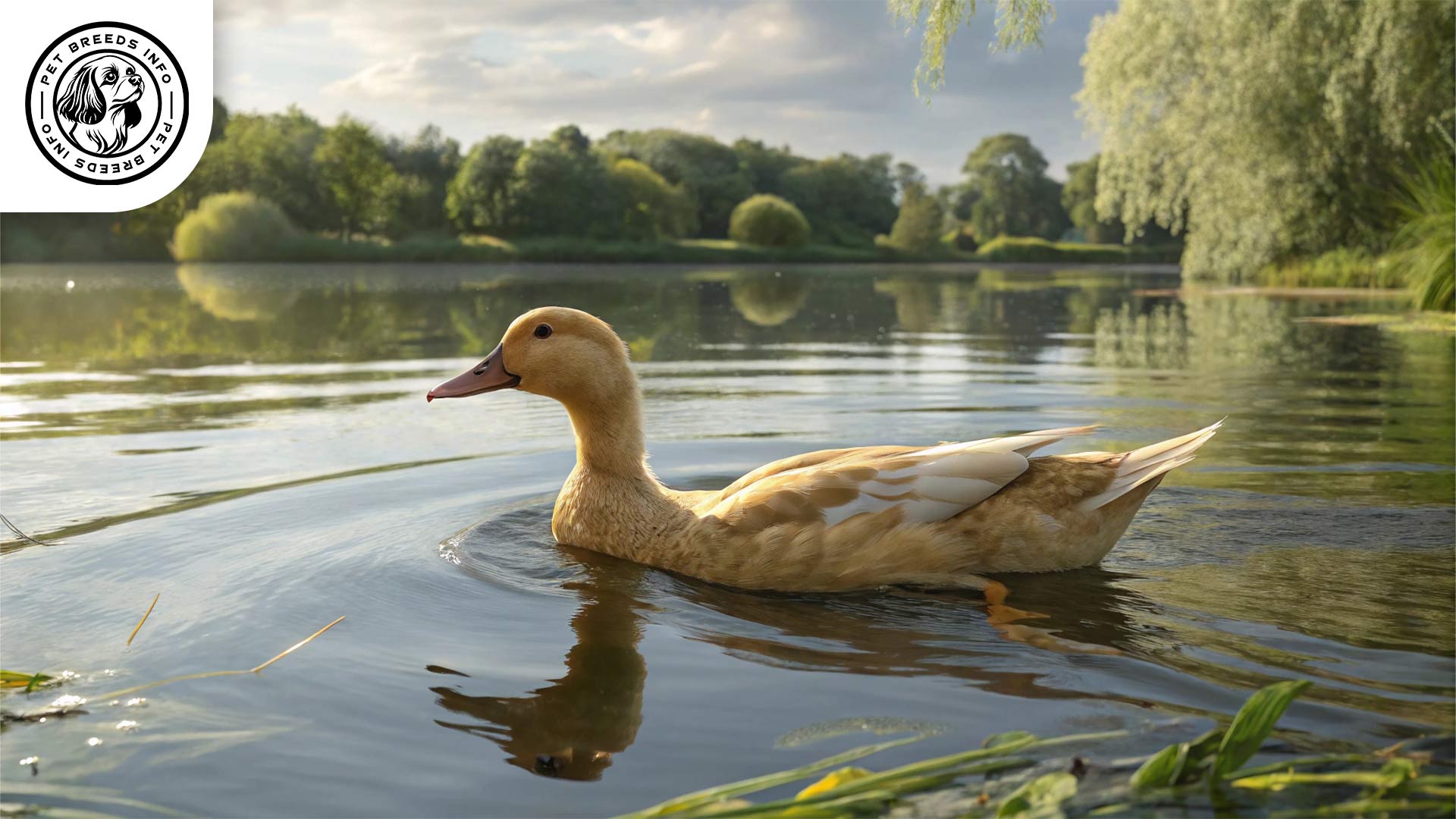
Personality and Temperament
Buff Orpington Ducks are known for their docile and friendly nature, making them ideal for backyard flocks and small farms. They are intelligent and relatively easy to train, particularly when hand-raised from ducklings. These ducks have a moderate energy level and enjoy foraging but are not excessively active. They form strong bonds with their caretakers and interact well with people, including children. Their social and calm demeanor also makes them suitable to be kept with other duck breeds and poultry.
Care and Maintenance Requirements
Buff Orpington Ducks require access to outdoor space where they can forage, swim, and explore. They thrive in environments with clean water sources, such as ponds or kiddie pools, which allow them to engage in their natural behaviors. Due to their dense plumage, they are relatively cold-hardy but should be provided shelter against extreme weather conditions. They do not require extensive grooming, but their living area should be kept clean to prevent diseases. Regular nail trimming and occasional bathing help maintain their hygiene.
Read More: Hyacinth Macaw Bird
Diet and Nutrition
Buff Orpington Ducks benefit from a balanced diet that includes high-quality commercial duck food supplemented with vegetables, grains, and protein sources like mealworms. Duck pellets or crumbles should be the main part of their diet. They also enjoy foraging for insects and plants, which contributes to their overall health. Foods to avoid include processed human foods, chocolate, onions, avocados, and excessive amounts of bread, as these can be harmful to ducks. They should always have access to fresh water for drinking and digestion.
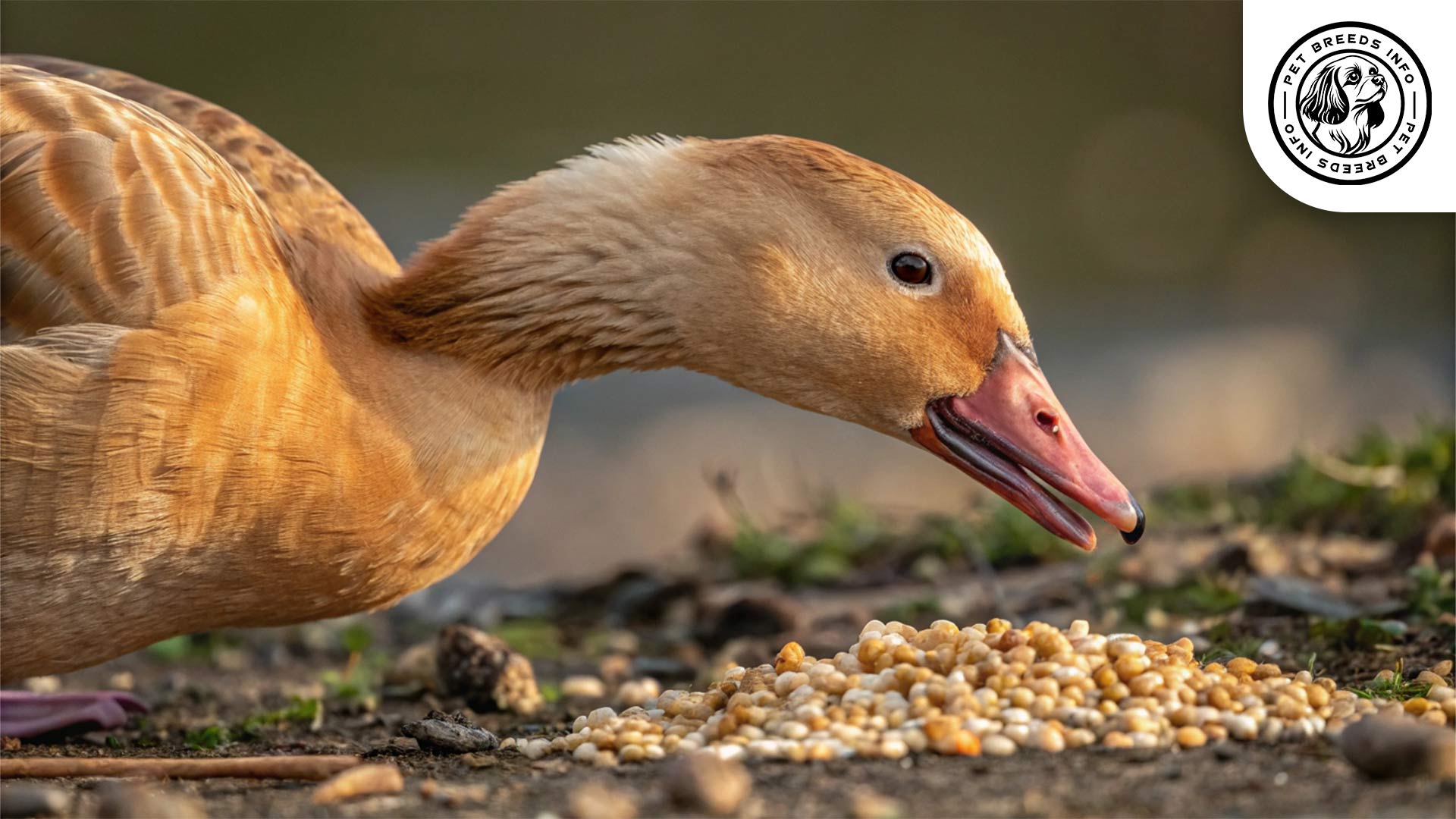
Health and Common Medical Issues
Buff Orpington Ducks are generally hardy birds with minimal health issues. However, they can be prone to common poultry ailments such as bumblefoot (a foot infection), respiratory infections, and parasites like mites and lice. Ensuring a clean living environment and providing a proper diet can prevent many health issues. They typically have a lifespan of 8-12 years with good care. Routine veterinary check-ups and necessary vaccinations are recommended for their overall well-being.
Training and Behavior Management
Buff Orpington Ducks are relatively easy to train, especially if they are raised with human interaction from a young age. They respond well to positive reinforcement techniques, such as providing food rewards when they follow commands or routines. Training them to respond to feeding times and ensuring they recognize their shelter area helps in managing their behavior. Early socialization with humans and other animals further strengthens their friendly nature.
Read More: Gang-gang Cockatoo Bird
Interaction with Other Animals and Humans
Buff Orpington Ducks are highly sociable and do well in a mixed flock with other ducks or chickens. They are excellent pets for families and individuals who enjoy keeping ducks as backyard companions. They are gentle around children, making them a suitable pet option for homesteads with young kids. While they are independent in certain aspects, such as foraging, they do enjoy human companionship and can become quite affectionate toward their caretakers.
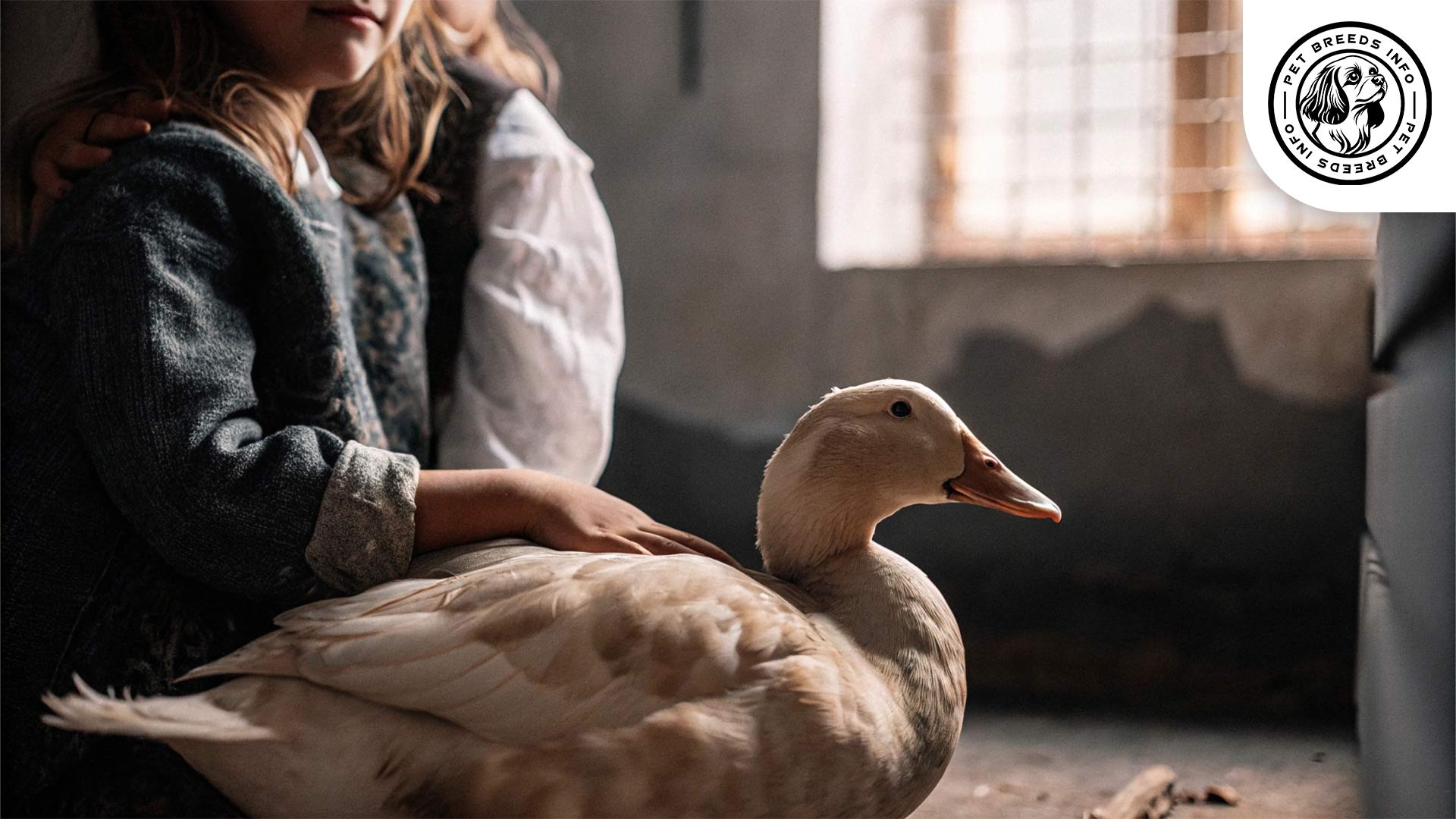
Price and Availability
The price of a Buff Orpington Duck varies depending on age, location, and the breeder’s reputation. Ducklings generally cost between $10 and $25 per bird. When purchasing, it’s important to choose reputable breeders or hatcheries to ensure healthy birds with good genetic backgrounds. Some farms and poultry adoption centers may also have Buff Orpington Ducks available for rehoming.
Conclusion and Final Thoughts
The Buff Orpington Duck is a fantastic breed for those looking for a friendly, low-maintenance duck with excellent egg production and meat qualities. Its calm temperament makes it ideal for families, backyard enthusiasts, and small-scale farmers. With proper care, space, and nutrition, these ducks thrive and provide companionship as well as farmyard benefits. Before choosing this breed, potential owners should consider their housing and feeding requirements to ensure a happy and healthy flock.
Read More: Barbary Dove
FAQ
How many eggs do Buff Orpington Ducks lay?
They are excellent layers, producing around 180–250 eggs per year.
Can Buff Orpington Ducks be kept with chickens?
Absolutely! They get along well with chickens and other calm poultry in mixed flocks.
Do they need access to water for swimming?
Yes, they enjoy clean water sources like small ponds or kiddie pools to swim and bathe.
Are they noisy birds?
No, Buff Orpington Ducks are relatively quiet, making them suitable for suburban or backyard settings.
